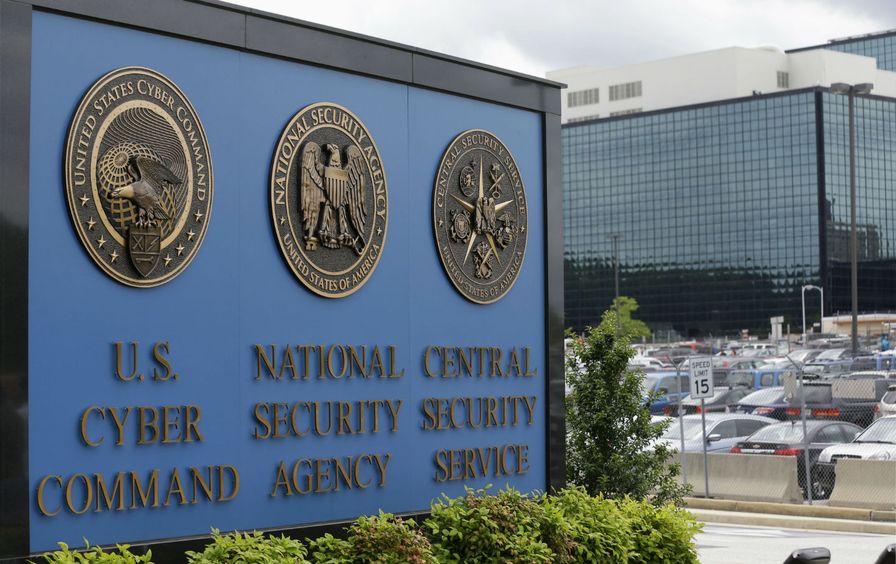 The National Security Agency campus in Fort Meade, Maryland. (AP Photo / Patrick Semansky)
The National Security Agency campus in Fort Meade, Maryland. (AP Photo / Patrick Semansky)
Shortly after the 2016 presidential election, two notable phrases began circulating widely in American political discourse, providing politicians with an effective shield against oversight and accountability: the “deep state” and “fake news.” Once rare in the American lexicon, these terms have since become mainstays in political rhetoric, central to a strategy of discrediting the very institutions responsible for holding power to account. Understanding the origins and mechanics of these two terms allows us to unravel their profound impact.
The “deep state” has its origins in the Turkish phrase derin devlet, which refers to a kind of shadow government, acting independently of elected officials.[1] In the context of political rhetoric in America, the term has been co-opted to describe a conspiracy of unelected bureaucrats and officials working against the interests of the people—or more specifically, against certain political leaders. This reimagining of the term gained traction after the 2016 election and by 2017, nearly half of Americans believed the deep state existed, and that it could be considered a major problem for the country.[2]
Similarly, the term “fake news” also carries with it a long history, but it underwent a significant transformation after the 2016 election. Once used to describe misinformation or propaganda, the term was quickly weaponized to discredit legitimate journalism.[3] By labeling unfavorable reporting as “fake news,” those under scrutiny were able to create a feedback loop that encouraged audiences to dismiss critical coverage outright and instead perceive it as biased or fabricated. By 2018, “fake news” had become synonymous with the dismissal of mainstream journalism, regardless of its factual accuracy.[4]
While the “deep state" and "fake news” narratives seem to address different domains, they both operate as sophisticated forms of poisoning the well![]() - discrediting your opponent to an audience in advance to encourage dismissing any future claims or accusations they may make in the future.
- discrediting your opponent to an audience in advance to encourage dismissing any future claims or accusations they may make in the future.
. This rhetorical strategy primes the audience to distrust sources of criticism before any accusations or evidence are even levied. When government oversight bodies are cast as cogs in the wheel of a covert “deep state,” their findings can be easily dismissed as politically motivated, regardless of any evidence to the contrary. Similarly, when press coverage is broadly painted as “fake news,” it diminishes the public’s ability to discern fact from fiction, creating an environment where truth becomes a matter of opinion rather than objective reality. The result is a pernicious erosion of trust in those institutions tasked with upholding accountability.
Poisoning the well narratives are particularly effective when they are plausible within their context. Both the “deep state” and “fake news” narratives draw strength from the sprawling, complex nature of the institutions they target. Government bureaucracy is vast, confusing, and often intimidating. Likewise, most news organizations, often owned by a handful of large, multi-national corporations, can seem equally all-powerful and intimidating.[5] Appealing to these anxieties is a reliable way for bad actors to stoke conspiratorial narratives and dismiss those who challenge them as naïve or complicit.
The narrative's success is in part aided by an American public whose trust in the government and the media is at an all-time low.[6] This underlying distrust predisposes Americans towards embracing a “deep state” conspiracy or towards writing off major news organizations as “fake news.” In this context, it becomes all-the-more plausible to believe that these immense and splintered ecosystems could somehow be coordinating behind the scenes and working in unison towards a single hidden agenda.
Ultimately, these calculated narratives do more than shield individual politicians from critical scrutiny—they weaken the very foundations of democratic oversight. By eroding trust in the institutions designed to ensure accountability and transparency, the “deep state” and “fake news” narratives contribute to a dangerous cycle of disinformation and disengagement. By poisoning the well, the two narratives isolate audiences from objective voices and prime them for even bigger lies in the future—a future free from oversight and accountability.